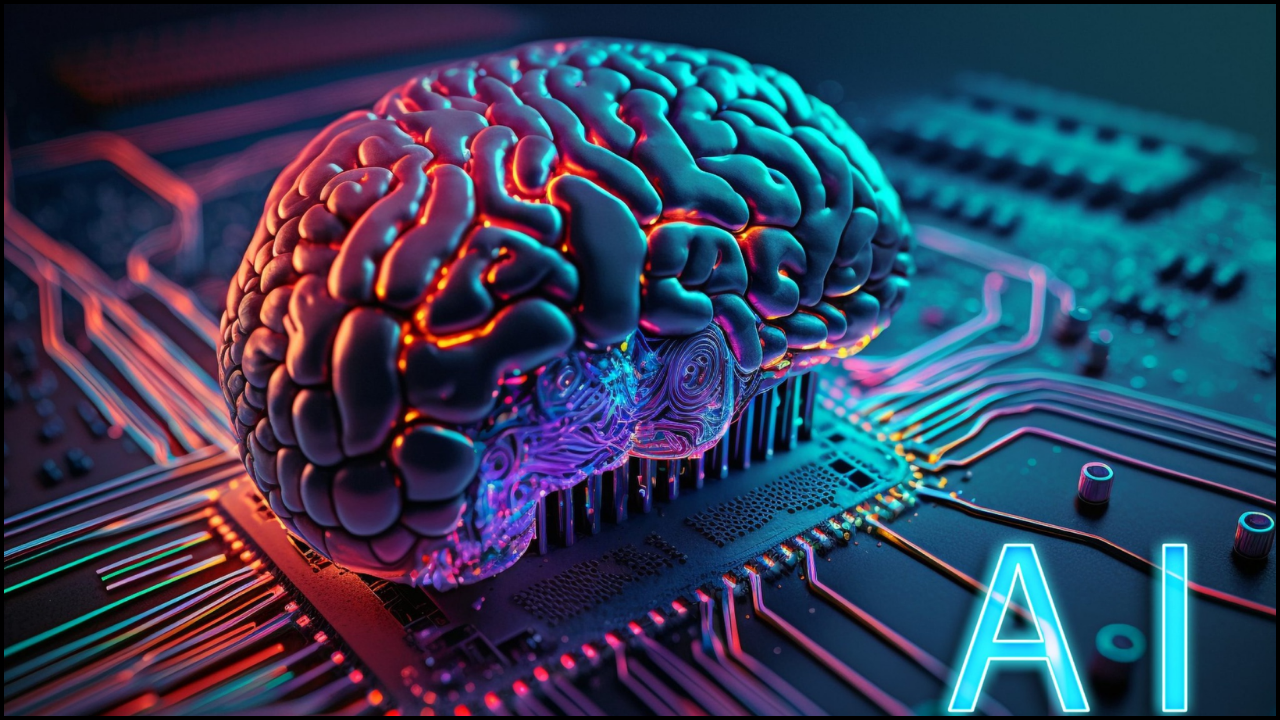Artificial intelligence (AI) is transforming scientific research, providing unprecedented capabilities in data analysis, problem-solving, and accelerating discovery. From medical breakthroughs to climate modeling, AI in science is enhancing the efficiency, accuracy, and innovation of scientific endeavors across various disciplines.
The Expanding Role of AI in Scientific Research
AI is no longer a futuristic concept in science; it's a vital tool. By processing massive datasets, identifying intricate patterns, and predicting outcomes, AI is revolutionizing fields such as:

- Medicine: AI aids in designing new drugs and significantly speeds up disease diagnosis.
- Physics: Machine learning models are used to simulate complex particle interactions, providing deeper insights.
- Environmental Science: AI predicts the impacts of climate change with greater precision, enabling more effective mitigation strategies.
The ability to integrate AI into scientific processes empowers researchers to tackle problems previously deemed unsolvable, pushing the boundaries of what's possible.
Exploring AI in Scientific Research
AI's contributions to scientific research are wide-ranging and impactful.

1. Data Analysis and Pattern Recognition
One of the most significant advantages of AI in scientific research is its capacity to analyze enormous datasets. Machine learning algorithms excel at:
- Detecting anomalies in medical imaging, leading to earlier detection of conditions like cancer.
- Identifying genetic markers linked to various diseases, paving the way for personalized medicine.
- Predicting chemical reactions in materials science, accelerating the development of new substances.
2. Accelerating Drug Discovery
The pharmaceutical industry heavily leverages AI to streamline and accelerate the drug discovery process. AI can:
- Screen millions of compounds rapidly to identify potential drug candidates.
- Predict drug interactions and potential side effects with greater accuracy, reducing risks in development.
- Significantly reduce development timelines, transforming processes that once took years into mere months.
3. Automating Research Literature Reviews
With the explosion of scientific publications, AI is invaluable for managing and synthesizing research literature. AI tools can:
- Summarize and categorize studies efficiently, saving researchers countless hours.
- Extract key findings from vast quantities of AI research papers and other scientific documents.
- Recommend relevant publications based on a user's specific interests, ensuring researchers stay informed.
Tools like OpenAI’s GPT models are particularly useful in synthesizing research trends and providing concise overviews.

4. Enhancing Simulations and Modeling
Complex simulations, common in fields like astrophysics, engineering, and climate science, greatly benefit from AI advancements. AI helps by:
- Reducing computational costs, making advanced simulations more accessible.
- Improving the accuracy of predictive models, leading to more reliable outcomes.
- Enabling real-time adjustments in experiments, allowing for dynamic optimization and exploration.
Leading Organizations in AI-Driven Research
Several prominent organizations are at the forefront of driving AI integration into scientific research.

1. OpenAI's Contributions
OpenAI has been a significant contributor to advancing AI in science through its cutting-edge models:
- GPT-4 assists with academic writing, data interpretation, and generating hypotheses.
- Codex (and its successor, fine-tuned versions of GPT models) helps automate scientific programming and code generation.
- DALL-E is used for visualizing complex scientific concepts and data in new and intuitive ways.
2. US AI Research Initiatives
The U.S. plays a leading role in AI-driven scientific research, with various initiatives fostering innovation:
- National AI Research Institutes, funded by organizations like the National Science Foundation (NSF), promote collaborative AI research across institutions.
- AI-driven projects at NASA are pushing boundaries in space exploration, data analysis from cosmic observations, and autonomous systems for missions.
- DARPA’s AI programs focus on developing advanced AI capabilities for defense and engineering, often with applications that extend to broader scientific fields.
Accessing AI Research Papers & Tools
For researchers and enthusiasts looking to engage with AI research, numerous resources are available:

- Peer-reviewed studies can be found on platforms like arXiv, IEEE Xplore, and ScienceDirect.
- Google Scholar Alerts are an excellent way to stay updated on the latest AI advancements in science by receiving notifications for new publications.
- AI-powered platforms such as IBM Watson and DeepMind offer tools and environments for collaborative research and accessing advanced AI capabilities.
Challenges & Ethical Considerations
Despite the immense benefits, the integration of AI in science comes with its own set of challenges and ethical considerations:

- Bias in AI models can inadvertently skew research outcomes, particularly if the training data is unrepresentative or biased.
- Data privacy concerns are paramount, especially in sensitive areas like medical and social research, where personal data is often used.
- Over-reliance on AI can potentially reduce critical human oversight and intuition, which remain vital in complex scientific inquiry.
Establishing and adhering to robust ethical guidelines in AI in scientific research is crucial for fostering responsible and beneficial innovation.
The Future of AI in Science
The trajectory of AI in science points towards increasingly sophisticated and integrated applications. Emerging trends include:
- AI-designed experiments that can self-optimize and iteratively improve based on real-time data.
- Quantum machine learning holds the promise of tackling ultra-complex problems that are currently beyond the scope of classical computing.
- Global AI collaborations will become even more critical for addressing pressing global challenges like pandemics, climate change, and energy crises.
As AI in science continues to evolve, interdisciplinary partnerships between AI experts and domain-specific scientists will be key to unlocking transformative breakthroughs.
Conclusion
AI is profoundly reshaping how scientific knowledge is discovered and applied. From the sophisticated language models developed by OpenAI to the cutting-edge research conducted at US AI research labs, artificial intelligence is making science faster, smarter, and more accessible. Whether you aim to explore the frontiers of AI in science or access the latest AI research papers, embracing these tools is essential for staying at the cutting edge of discovery. The synergy between human curiosity and AI in science promises a future where previously impossible feats become achievable, one algorithm at a time.








